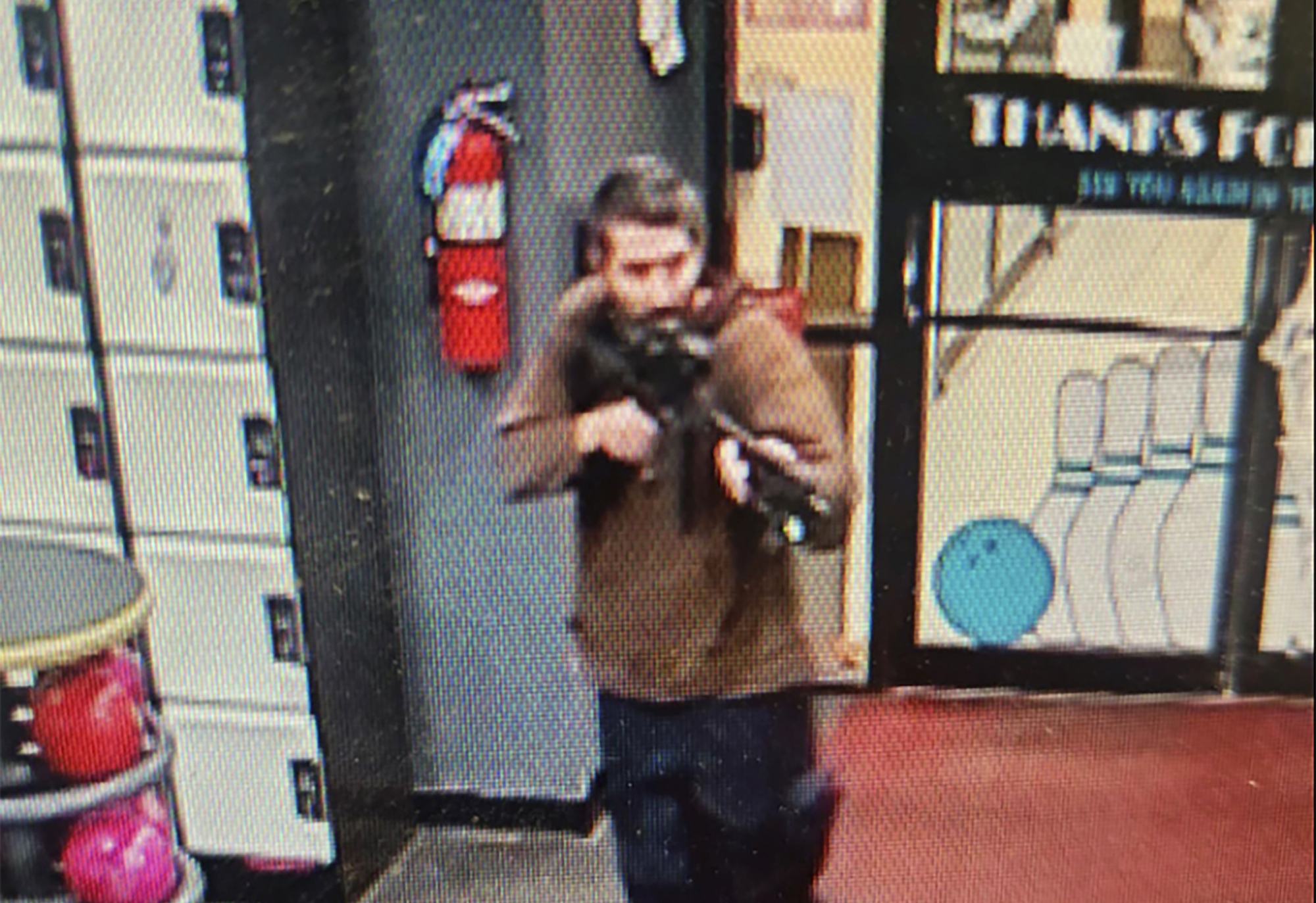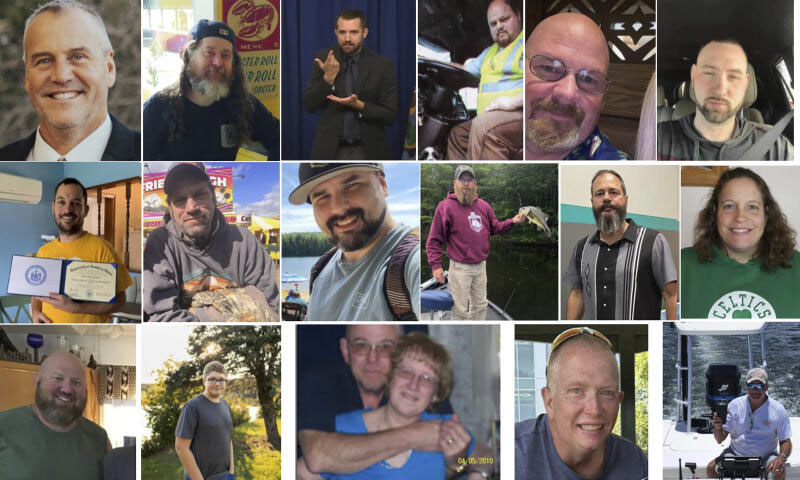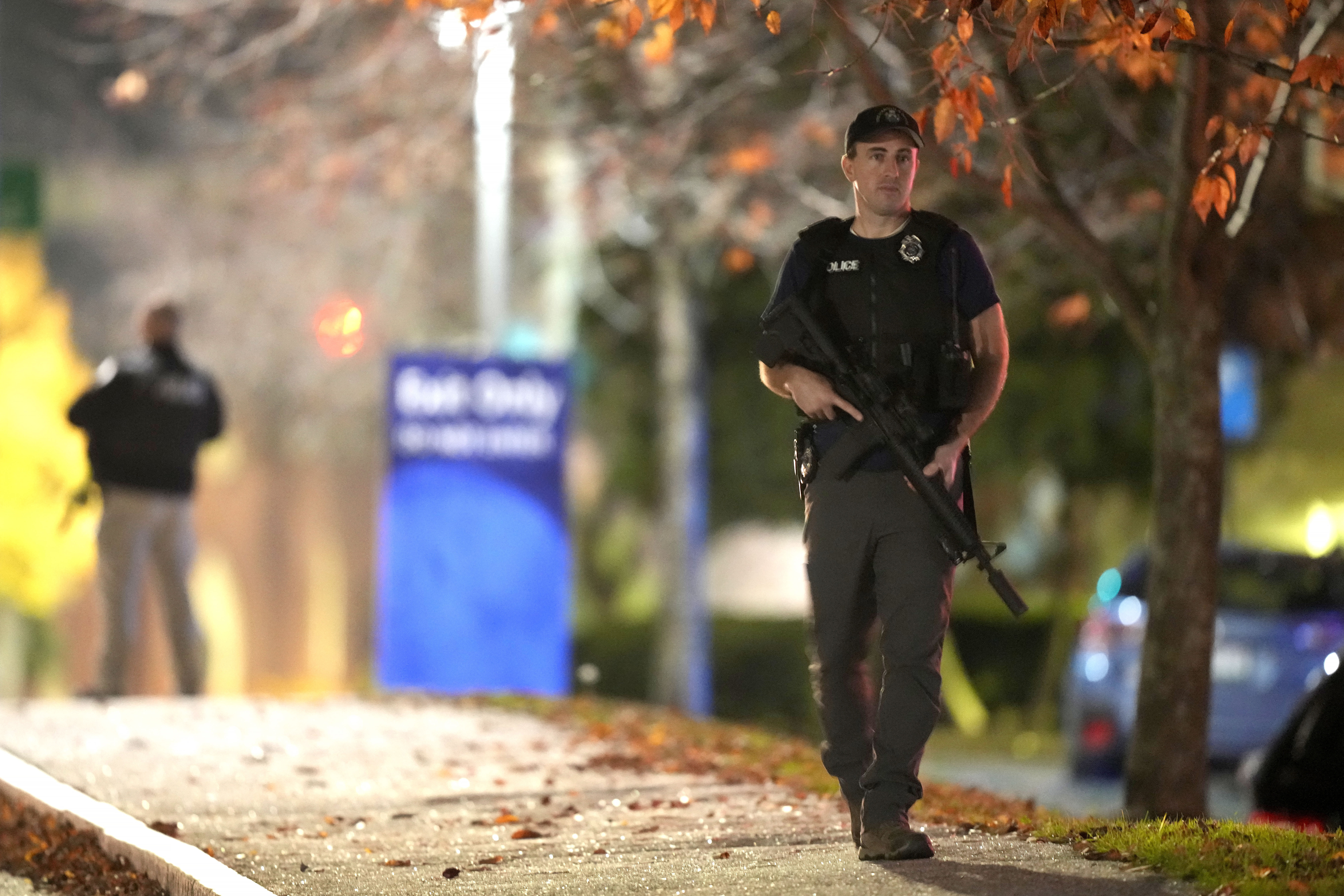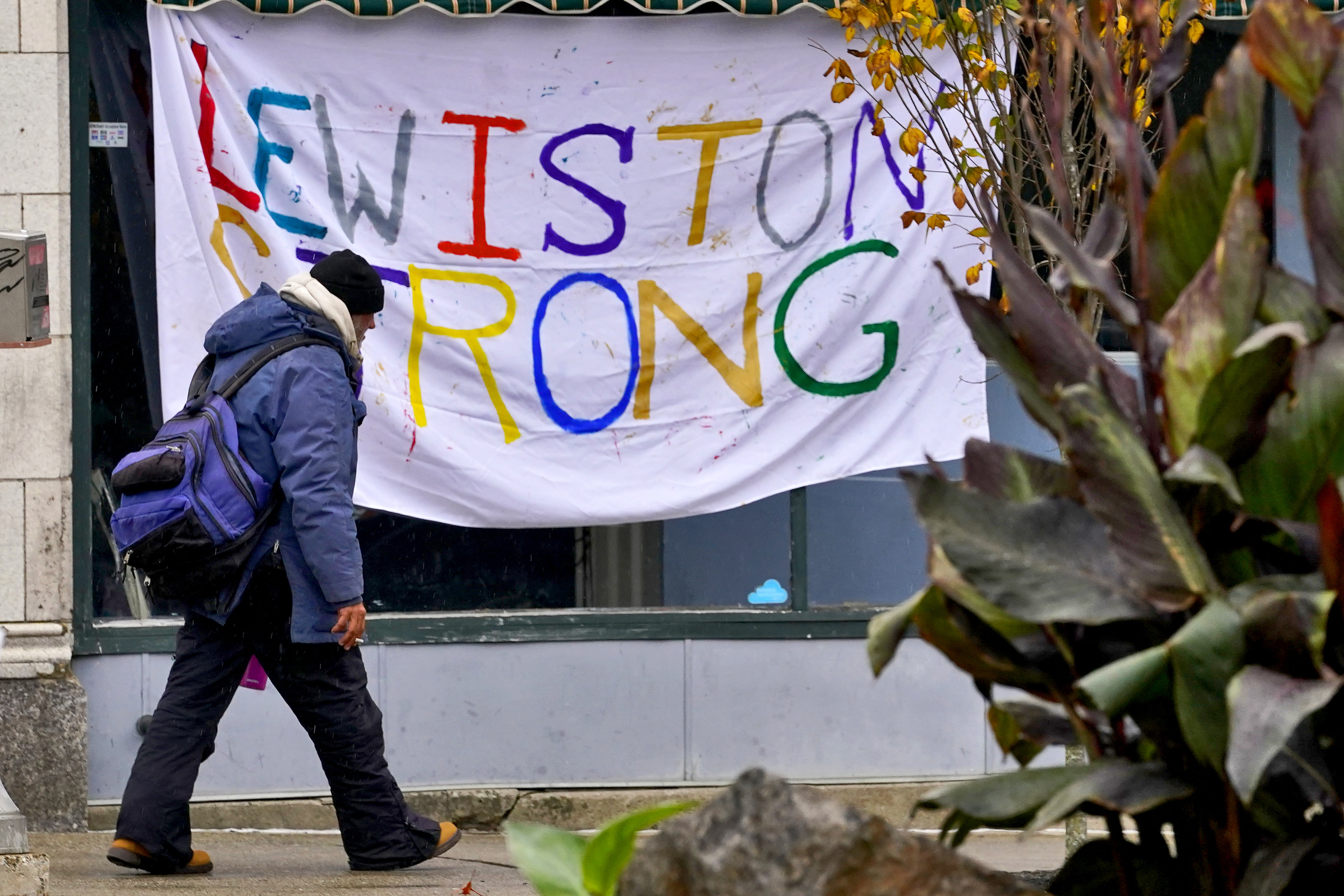Emergency calls pouring into emergency services in the US state of Maine as a gunman opened fire with an assault rifle reflected the chaos of the unfolding situation as shots rang out first at a bowling alley, then minutes later at a bar.
The 911 transcripts of the October 25 shooting, the deadliest in Maine history, were released on Monday (Tuesday AEDT).
They showed that people began identifying the shooter soon after the photo was released to the public. The transcripts also captured tense moments including emergency service officials staying on the phone with callers, providing encouragement and telling them to wait for police to announce their arrival.
READ MORE: Woman rescued from floodwaters as Victorians told it's too late to leave

"Just keep those around you as quiet as possible. If you hear the police announce themselves, make yourselves known, but otherwise I want you to stay down and stay quiet, okay?" one dispatcher said in the transcripts, released in response to a Freedom of Access Act request by The Associated Press and other news organisations.
One of the 911 calls came from someone whose child was hit in the arm. "Shooter. There's a shooter," the caller said. "I have a kid. He's bleeding."
Another caller reported grabbing a four-year-old and running. Another simply implored, "Please hurry." Another person appeared to be counselling someone who was injured while on the phone, saying: "Pray, pray. You're ok. You're ok. Trying to look for something clean. My coat is the only thing."
About two hours after the bowling alley shooting, one caller said they saw a picture of the suspect online and correctly identified him as Robert Card of Bowdoin. The caller described Card's deteriorating mental health state as known to the community, saying he had recently kicked his family out of his house and "they're basically estranged and he's just not been well."
READ MORE: Hopes of cheaper petrol in Australia after world oil prices fall following major Saudi cuts

The caller's name is redacted, but their statements support previously released police and military statements about Card's mental health state and potential danger to the community.
The caller goes on to state that Card was known to have firearms in his house, and that the sheriff's department had previously been contacted about his behaviour and mental health.
"We've just been really concerned about his mental health lately," the person said.
In another call, a dispatcher tries to calm down a caller who is scared about the shooter's whereabouts.
"Just keep those around you as quiet as possible. If you hear the police announce themselves, make yourselves known, but otherwise I want you to stay down and stay quiet, ok?" the dispatcher tells the caller.
READ MORE: House-proud mouse discovered tidying British man's shed every night

"Just do not make any sudden movements. If you know there's police, put your hands in the air so they know you're not armed," the dispatcher said.
The caller then says "never would've thought this would happen here in Lewiston, Maine," before hanging up.
All told, 18 people were killed and 13 wounded when a US Army reservist opened fire on October 25, leaving behind carnage and prompting a lockdown for tens of thousands of residents during the biggest manhunt in state history. It ended with the discovery of the body of gunman Robert Card II two days later in nearby Lisbon. An autopsy concluded he died by suicide.
An independent commission appointed by Governor Janet Mills is investigating all aspects of the shootings, which sparked consternation over why warning signs about Card's deteriorating mental health were ignored.
Concern about Card's behaviour accelerated when he was hospitalised for two weeks while with his Army Reserve unit for training at West Point, New York. After his release, his access to military weapons was restricted, and he was no longer allowed to be deployed with his unit.

His fellow reservists remained worried about him upon his return to Maine. One of them wrote to a superior in September in a text: "I believe he's going to snap and do a mass shooting."
The FBI said Card's hospitalisation didn't cause him to be placed on a list of "prohibited" people who are not allowed to have guns. And laws in New York and Maine aimed at removing guns from people who pose a danger were not invoked.
